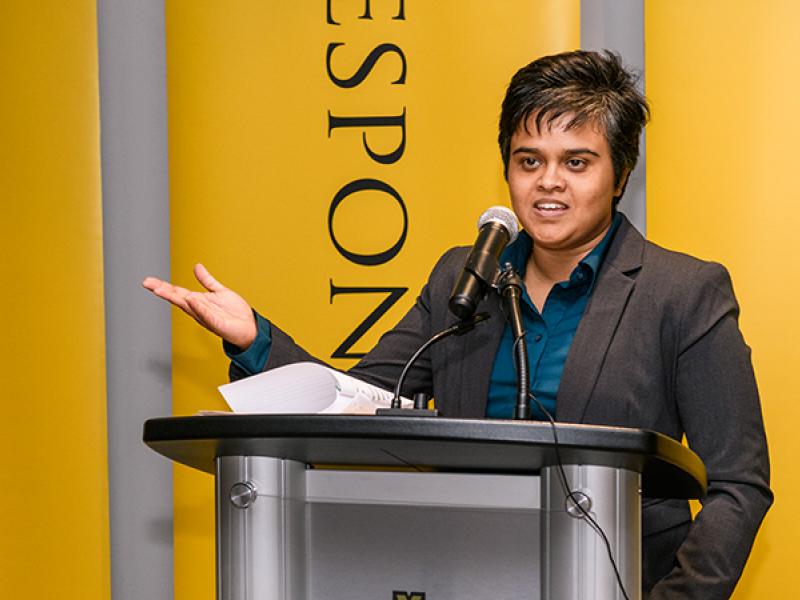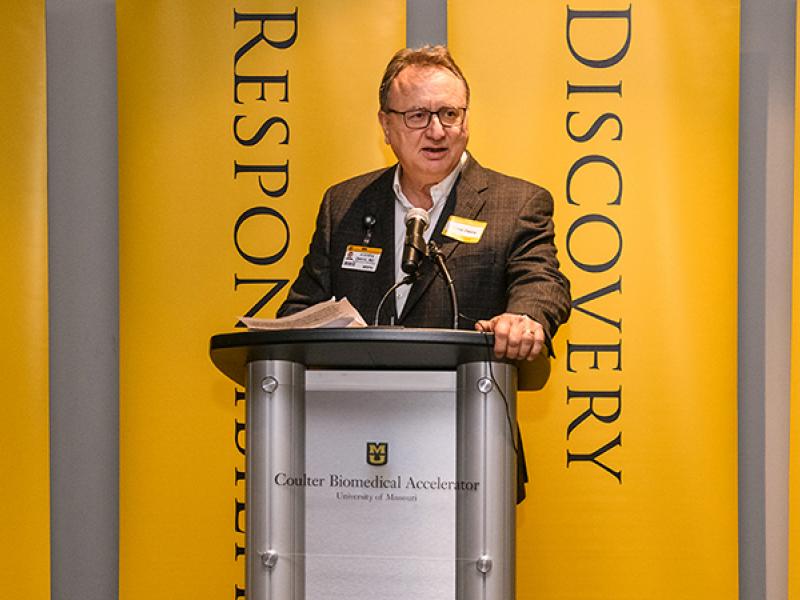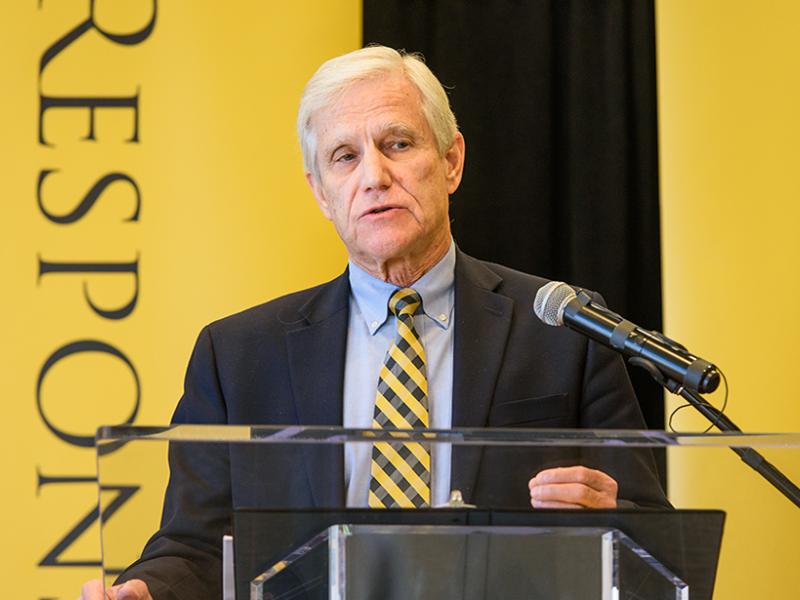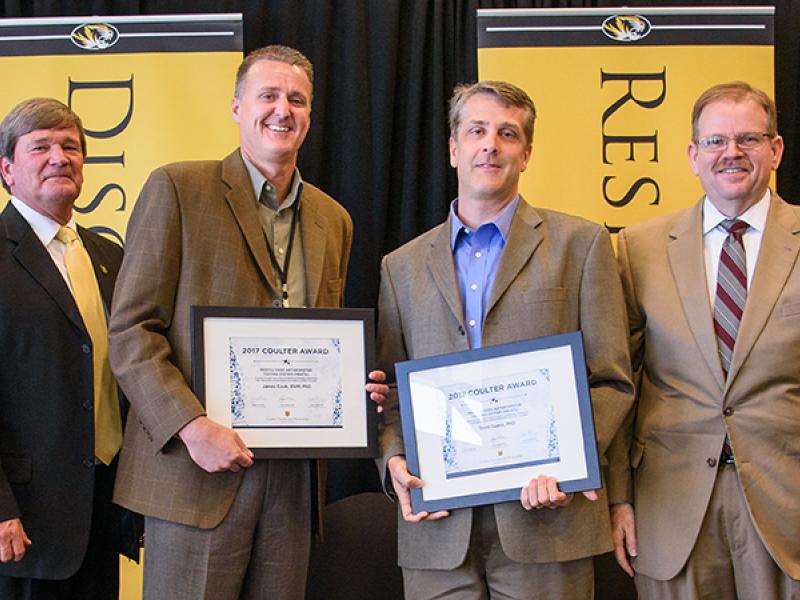HeartSpeed: Fast Cardiac MRIs with the Freedom to Breathe
Principal Investigators
Robert Thomen, PhD
Departments of Bioengineering and Radiology
Steven Van Doren, PhD
Department of Biochemistry
Talissa Altes, MD
Department of Radiology
Cardiac magnetic resonance imaging is used to detect and monitor cardiac disease and evaluate the heart’s anatomy and function. Cardiac MRI exams can last 45 to 90 minutes and require multiple 10- to 20-second breath holds by the patient. The procedure can be exhausting for patients, particularly frail patients with breathing difficulties who are unable to hold their breath. HeartSpeed addresses this need by using software to eliminate the need for patients to hold their breath. Shorter procedure times enable increased efficiency and lower costs, making HeartSpeed a win for both patients and health care providers.
T-Meter: Sensitive, Low-cost Testosterone Testing at the Point of Care
Principal Investigators
Maria Fidalgo, PhD
Department of Civil and Environmental Engineering
Luis Polo-Parada, PhD
Department of Medical Pharmacology and Physiology
Liliana Garcia-Vargas, MD
Division of Endocrinology, Diabetes and Metabolism
The number of teens and adults in the U.S. who identify as transgender and gender-nonconforming is growing exponentially, leading to more patients presenting for care. However, individuals undergoing hormone therapy may only monitor their blood hormone levels one to two times a year, rather than the four to eight times a year necessary for optimal hormone therapy. The availability of an accurate, low-cost, testosterone test would also enable men who have low testosterone to easily have their levels checked. The researchers are developing a portable, low-cost device that can accurately measure testosterone levels in a single drop of blood, similar to a glucose strip test system.
Frozen Hearts: Novel Cryopreservation Media for Cardiac Transplantation
Principal Investigators
Yuwen Zhang, PhD
Department of Mechanical and Aerospace Engineering
Xu Han, PhD
Division of Cardiovascular Medicine
Mike Hill, PhD
Department of Medical Pharmacology and Physiology
William Fay, MD
Departments of Medicine and Medical Pharmacology and Physiology
In the U.S., approximately 2,000 patients die while waiting for a heart transplant each year, and another 1,000 patients become too ill for transplantation surgery — despite the fact that 6,000 transplantable hearts are harvested each year. This is largely because donated hearts can only be stored for a maximum of six hours. As a result of this short window, about half of transplantable hearts collected must be discarded. To increase the length of time donor hearts can remain viable for transplantation, the researchers are developing a new “nano-ice forming” cryopreservation medium, which would maintain the viability of donated hearts for days and possibly weeks.




